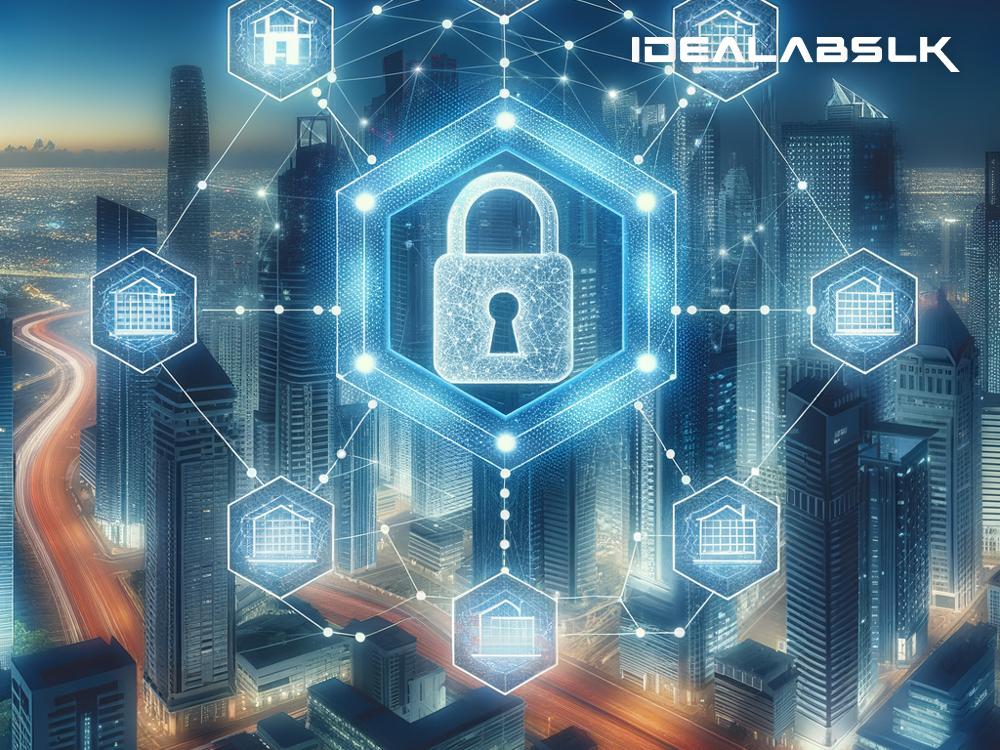How Blockchain is Revolutionizing the Real Estate Sector by Preventing Contract Tampering
The world of real estate is evolving, and with it, the way transactions are made and records are kept. Traditionally, the process of buying or selling a property has been laborious, involving multiple parties, extensive paperwork, and, unfortunately, a significant margin for error or fraud. However, blockchain technology is revolutionizing this industry by offering a solution that drastically reduces the risks of contract tampering. But what exactly is blockchain, and how does it manage to add this layer of security to real estate contracts? Let's break it down into simple English.
Understanding Blockchain
Imagine a digital ledger that's shared among a network of computers. This ledger records transactions in a way that ensures they are secure, transparent, and unchangeable. Each record, or "block," is linked to the previous one, forming a "chain," hence the name blockchain. Once information is entered, it's nearly impossible to alter without alerting the entire network, making tampering a herculean task.
The Real Estate Game-Changer
In real estate, contracts are the backbone of any transaction. They contain crucial details about the property, seller, buyer, and the terms of the agreement. Traditionally, these contracts are physical documents, vulnerable to loss, damage, or fraud. This is where blockchain comes in as a game-changer. By digitizing contracts and storing them on a blockchain, the information becomes tamper-proof, ensuring the authenticity and integrity of the document.
The Mechanism of Protection
-
Decentralization: Unlike traditional systems where a single entity controls the data, blockchain is decentralized. It means the information is distributed across numerous computers, making it nearly impossible for a single party to manipulate the contract without detection.
-
Transparency: Every transaction on a blockchain is visible to all participants, ensuring a high level of transparency. In real estate, this means any changes made to a contract are visible to all parties involved, including buyers, sellers, agents, and lawyers.
-
Immutability: Once a transaction is recorded on a blockchain, altering it retroactively is extremely difficult, if not impossible. If a change needs to be made, a new transaction must be added to the chain, providing a clear audit trail.
-
Security: Blockchain utilizes cryptography to secure data, making it exceedingly challenging for hackers to corrupt. Each transaction is encrypted and can only be accessed by parties with the correct decryption keys, safeguarding sensitive information contained in real estate contracts.
Real-World Benefits for Real Estate
-
Reduced Fraud: With contracts being immutable and securely stored on a blockchain, the risk of fraudulent activities, such as forging signatures or altering contract details, is significantly reduced.
-
Efficiency and Speed: The traditional process of buying or selling property can be lengthy due to paperwork and verification processes. Blockchain streamlines these operations by providing a single, immutable version of the contract that all parties can access instantaneously.
-
Cost Reduction: By minimizing the need for intermediaries, such as lawyers and brokers, for verifying data, blockchain can potentially lower transaction costs associated with real estate deals.
-
Increased Trust: The transparency and security features of blockchain technology foster trust among parties involved in a real estate transaction. Buyers and sellers can have peace of mind knowing the contract is secure and unaltered.
The Future Landscape
While the adoption of blockchain in real estate is still in its early stages, its potential to transform the industry is undeniable. Governments and corporations around the world are already exploring ways to integrate this technology into their real estate transaction and record-keeping processes.
Embracing Change
The integration of blockchain technology into the real estate sector represents a significant shift towards more secure, transparent, and efficient transactions. It's an exciting time for industry professionals and consumers alike, as we stand on the brink of a technological revolution that promises to redefine how we buy, sell, and perceive property ownership.
In conclusion, blockchain technology offers a robust solution to prevent contract tampering in real estate transactions. By ensuring contracts are secure, transparent, and immutable, blockchain is not just a technological innovation but a beacon of trust and reliability in an industry fraught with complexities and challenges. As we move forward, it's clear that blockchain technology will play a pivotal role in shaping the future of real estate.

